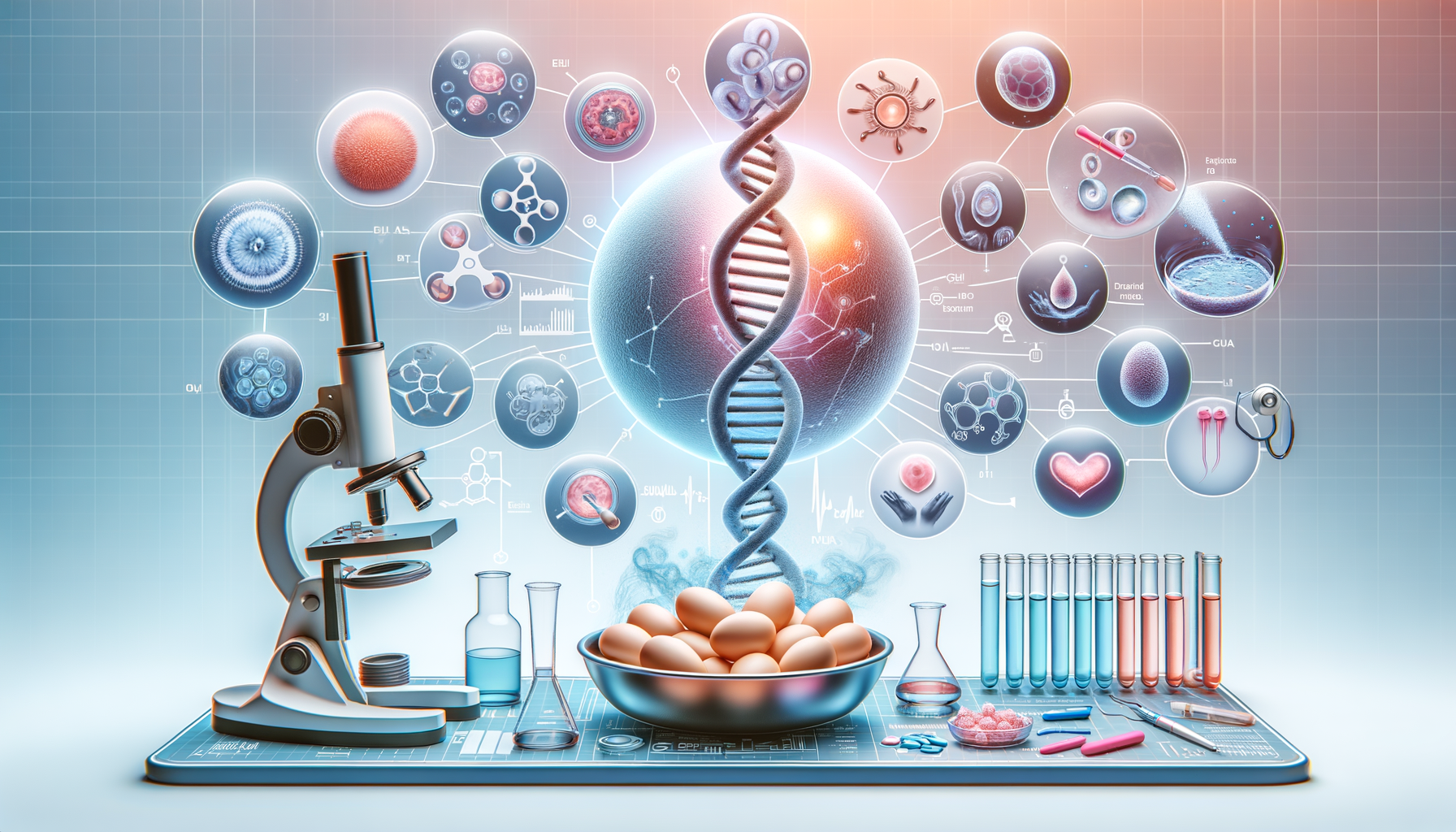Introduction to Egg Donation Fertility Programs
Egg donation fertility programs have emerged as a beacon of hope for many individuals and couples facing the challenges of infertility. These programs offer a pathway to parenthood for those who cannot conceive using their own eggs due to various reasons, such as age, genetic conditions, or health issues. The process involves a donor providing eggs, which are then used in assisted reproductive technologies like in vitro fertilization (IVF) or gestational surrogacy. This comprehensive guide explores the intricacies of egg donation programs, providing valuable insights into how they work and what they entail.
The importance of understanding egg donation cannot be overstated, as it plays a crucial role in expanding family-building options. It is essential for prospective parents to be well-informed about the process, legalities, and emotional aspects involved. By demystifying egg donation, we can appreciate its significance in offering new beginnings to those eager to experience the joys of parenthood.
The Process of Egg Donation
The process of egg donation is a meticulously coordinated effort that involves several key steps to ensure the successful retrieval and use of donor eggs. Initially, potential egg donors undergo a rigorous screening process, which includes medical, psychological, and genetic evaluations. This ensures that the donor is in optimal health and that there are no underlying issues that could affect the success of the donation.
Once a donor is selected, she undergoes ovarian stimulation, a procedure that involves administering hormones to stimulate the ovaries to produce multiple eggs. This phase is closely monitored by medical professionals to adjust medication dosages and ensure the donor’s safety. The eggs are then retrieved through a minimally invasive procedure known as transvaginal ultrasound aspiration.
After retrieval, the eggs are fertilized with sperm in a laboratory setting, typically via IVF. The resulting embryos are monitored for development, and the healthiest embryos are selected for transfer into the intended mother’s uterus or a gestational surrogate. This intricate process highlights the collaborative efforts between donors, medical teams, and intended parents to achieve a successful outcome.
Legal and Ethical Considerations
Egg donation is not only a medical procedure but also a legal and ethical endeavor that requires careful consideration. Legal frameworks surrounding egg donation vary by country and region, making it imperative for participants to be aware of the laws applicable to their situation. These regulations often address issues such as donor anonymity, parental rights, and compensation for donors.
Ethically, egg donation raises questions about the rights of donors, recipients, and the resulting children. Many programs emphasize informed consent, ensuring that donors fully understand the implications of their participation. Additionally, ethical guidelines often promote transparency and the protection of all parties involved, fostering a respectful and responsible approach to egg donation.
Intended parents are encouraged to seek legal counsel to navigate the complexities of contracts and agreements, safeguarding their rights and those of the donor. Ultimately, the goal is to create a framework that respects the autonomy and dignity of everyone involved, paving the way for a positive and ethical egg donation experience.
Emotional and Psychological Aspects
Embarking on the journey of egg donation involves navigating a range of emotional and psychological experiences for both donors and intended parents. For donors, the decision to provide eggs can be deeply fulfilling, knowing they are helping others achieve their dreams of having a family. However, it can also bring about feelings of uncertainty and the need for emotional support throughout the process.
Intended parents, on the other hand, may face a mix of hope and anxiety as they rely on donor eggs to conceive. The emotional journey can be complex, involving acceptance of using donor gametes and coping with the stress of fertility treatments. Counseling and support groups often play a vital role in helping all parties manage these emotions and maintain a positive outlook.
Open communication between donors and recipients, facilitated by fertility clinics or agencies, can also enhance the emotional experience, fostering a sense of connection and shared purpose. By acknowledging and addressing the emotional dimensions of egg donation, all participants can navigate the process with greater resilience and understanding.
Success Rates and Future Prospects
The success rates of egg donation fertility programs are generally promising, offering a higher likelihood of pregnancy compared to using one’s own eggs, especially for older women or those with fertility issues. Factors influencing success include the age and health of the donor, the quality of the sperm, and the recipient’s uterine environment.
Advancements in reproductive technology continue to enhance the success of egg donation. Techniques such as preimplantation genetic testing (PGT) can help select embryos with the highest potential for a healthy pregnancy, further improving outcomes. Additionally, ongoing research into fertility preservation and egg freezing offers hope for future developments in the field.
As egg donation programs evolve, they continue to offer new possibilities for individuals and couples struggling with infertility. By staying informed about the latest advancements and maintaining open communication with medical professionals, intended parents can make well-informed decisions that align with their family-building goals.



Leave a Reply